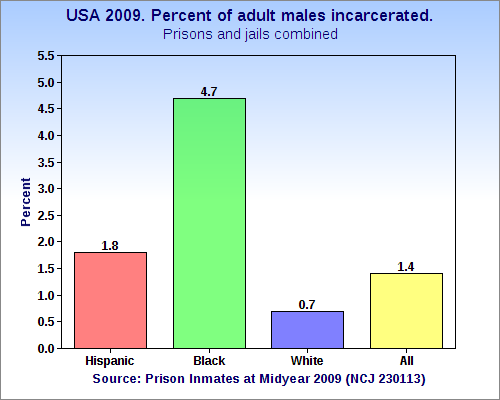Among Ferguson’s young adults there are, in the words of the song, two girls for every boy — that’s not such a happy finding. Modeled Behavior reports:
An important but unreported indicator of Ferguson’s dilemma is that half of young African American men are missing from the community. According to the U.S. Census Bureau, while there are 1,182 African American women between the ages of 25 and 34 living in Ferguson, there are only 577 African American men in this age group. In other words there are more than two young black women for each young black man in Ferguson. The problem of missing black men extends to other age groups. More than 40% of black men in both the 20 to 24 and 35 to 54 age groups in Ferguson are missing.
It is worth noting that there are approximately equal numbers of African American boys and girls, under the age of 20, in Ferguson (2,332 boys and 2,341 girls). What has happened to young African American men in Ferguson? There are several possibilities. First, the Census counts only the civilian population, and excludes individuals serving in the Armed Forces. Second, tragically, some of these young men have already died. Third, Census figures do not include individuals who are incarcerated at the time of the survey. Finally, the Census Bureau may undercount homeless men, men who are marginally attached to the community, and men who are primarily engaged in criminal behavior.
What does that mean for achieving a police force representative of Ferguson?
While there have been important changes in the past few decades, law enforcement is an occupation disproportionately represented by younger men. According to the Census Bureau over 85% of police officers in the U.S. are men and only 13% are age 55 and above. As Ferguson strives to achieve greater racial diversity in its police force, one of the first problems civic leaders will face is a shortage of young African American men from Ferguson who can fill positions in the police department. Many of the socioeconomic problems that have caused these young men to be absent from their community will also make it difficult, if not impossible, for these men to pursue a career in law enforcement.
What’s your take away?
Posted by John B. Chilton
Image Source: Wikimedia Commons

